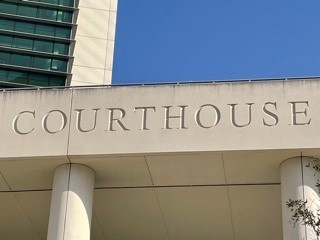Probate Contingency Fee– how does it work in Florida?

A probate contingency fee may be appropriate for certain family members and beneficiaries. But before you hire a lawyer for your Florida probate matter, consider the pro’s and con’s. Make sure you get your contract in writing and understand your rights and obligations. We have written about CONTINGENCY FEES in Florida before. Now, let’s focus on them in a probate case. Whether they make sense or not. For a FREE CONTINGENCY FEE VIDEO, click here. Such a compensation arrangement may be appropriate to help you get the legal representation you need to be heard in court. These type of fee arrangements may make sense for trust cases, inheritance lawsuits and probates. And I’m not talking just about a will contest. Every day, it seems that beneficiaries need legal representation to deal with their trustee or executor. And the Personal Representative.

Does it make sense?
When is a probate contingency fee appropriate and does it make sense?
Well, many times family members want to OBJECT TO A WILL in Florida.
But, they can’t afford a probate lawyer to handle their trial. After all, a will contest, for example, is a trial. And there’s lots of work that goes into preparing your case for trial. Witnesses to depose, hearings, research, discovery and gathering EVIDENCE.
Many times, a family member or heir does not have thousands of dollars to pay for a probate trial. Or even to pay a retainer.
Important Points
That’s where a contingency fee may make sense.
Here are some key points to a Florida Probate Contingency Fee.
First, if there is no inheritance or recovery, you don’t owe your probate litigator any fees or compensation. Zero. But be careful. There are costs in every lawsuit. And the client is responsible for paying costs even if your law firm advances them for you. So, ask your lawyer if she will advance costs for you, or what your costs may run.
No recovery, no fee. So, both you and your lawyer are pulling in the same direction. There’s an incentive for your Florida Probate lawyer to work hard and be aggressive.
Second, no retainer. You don’t have to pay an initial fee, a deposit or a retainer, which can be in the tens of thousands. Third, no monthly billings. Most law firms get paid for their time. Billable hours. They often bill a client each month. And expect payment upon receipt. Not so with a probate contingency fee.
Lawyers get paid at the end, if there is a recovery or inheritance.
Maybe you get an inheritance from a trust or a Pour Over Will. Maybe you take a settlement after months or years of good legal work. But there is downside.
To compensate your lawyer for the risk of nonpayment if you lose, you agree to give them a percentage of any inheritance or recovery. To some, that’s no big deal. Some believe that an inheritance is “found money.” What have I got to lose? Florida attorneys’ conduct and fees are regulated by the Florida Bar.
Whether it makes sense for you or not depends on your case and who you hire for a lawyer.
Look for an experienced lawyer who actually handles trials and appeals. Watch out for so called “probate lawyers” who tell you that they got to court “all the time.” But they don’t really try cases. Ask them how many actual trials (not hearings) they had in the last year. Ask them how they object to questions in trial. Quiz them about the rules of evidence and procedure. You get what you pay for so the saying goes.